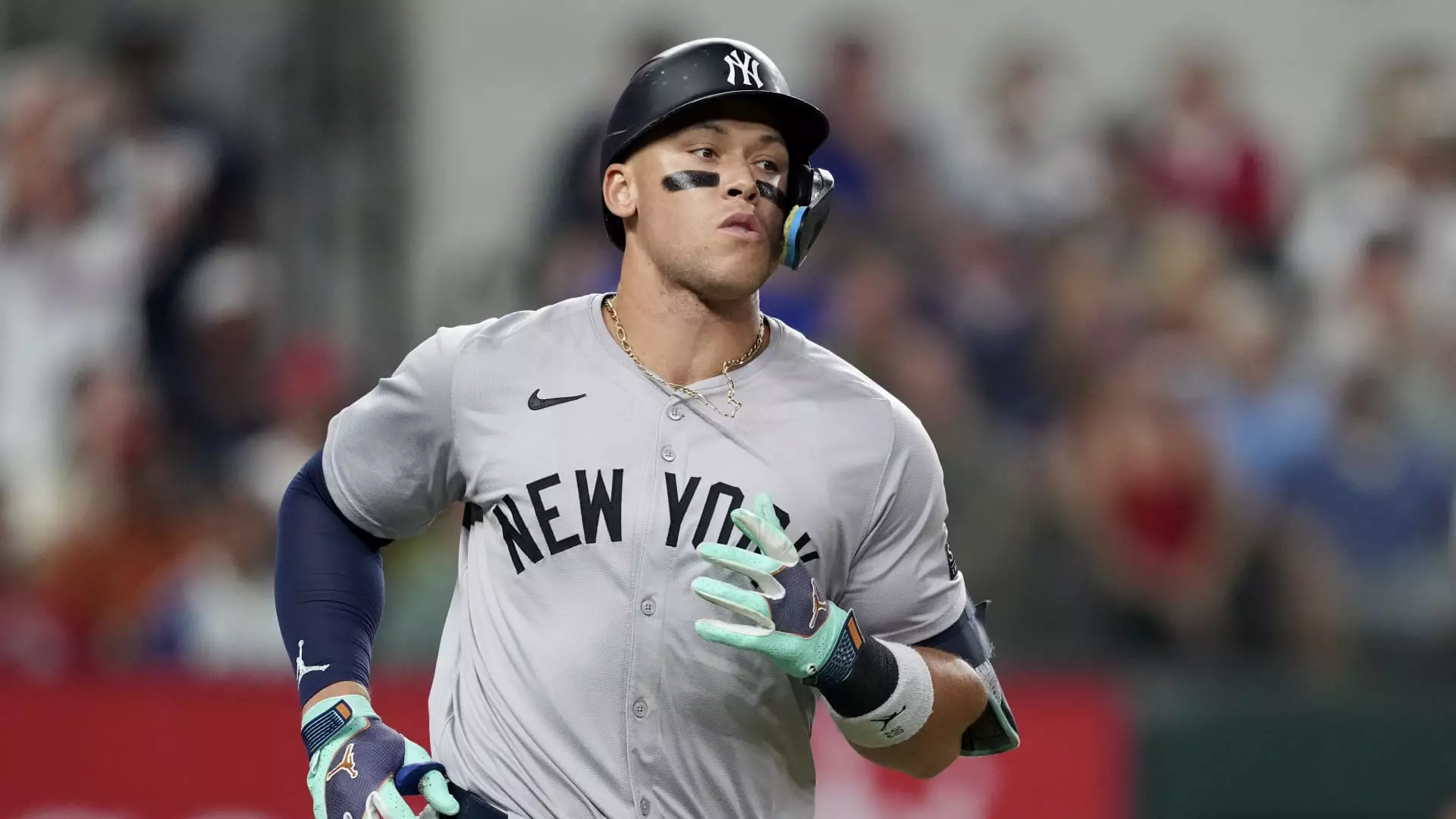The excitement of Major League Baseball’s (MLB) postseason is palpable this year, marked by record-breaking viewership and an enthusiastic fan base. As sports networks compete for viewer attention, MLB has stepped into the spotlight, proving that America’s pastime still holds a significant place in the hearts of baseball fans across the nation. Recent changes in league structure, broadcasting partnerships, and game rules seem to be breathing new life into this storied sport.
MLB’s National League Championship Series (NLCS) kicked off with an impressive showing as the New York Mets squared off against the Los Angeles Dodgers. Averaging 8.26 million viewers, this game garnered the highest ratings for an LCS game since 2009. The figures highlight a welcome resurgence in viewership, considering the struggles in past seasons to maintain cultural relevance among younger audiences. Moreover, the American League Championship Series (ALCS) match-up between the New York Yankees and the Cleveland Guardians saw a noteworthy 4% increase in viewership compared to the previous year, captivating 3.9 million viewers. Despite the competition posed by NFL games airing simultaneously, these numbers indicate a strong interest in postseason baseball that defies recent trends.
Historically, MLB has faced skepticism regarding its cultural appeal, particularly as various demographics emerge with different entertainment preferences, including shorter attention spans. Nevertheless, data shows a remarkable rally as viewership for the American League Division Series increased by a staggering 20%, averaging 3 million viewers. Similarly, the National League Division Series also enjoyed a boost in ratings, particularly in their fourth games, suggesting that the allure of playoff baseball remains intact. This uplift in interest comes on the heels of a disappointing World Series last year, which suffered from poor ratings largely attributed to the lack of major market teams involved.
The 2024 regular season has also seen a renaissance for Major League Baseball, with reported increases in attendance and fan engagement. MLB credits this surge to the implementation of time-saving measures, such as the pitch clock and modifications like larger bases and restrictions on defensive shifts. These innovations, designed to increase action and pace, have proven effective in resonating with viewers. MLB Commissioner Rob Manfred stated, “The increased enthusiasm baseball fans of all ages have shown the last two seasons is evident in all of the ways we track fan engagement.” This resonates well with a landscape where leagues must constantly adapt to retain viewership.
Emphasizing emerging talents, players like Shohei Ohtani and Aaron Judge have become pivotal in rekindling interest among fans. The possibility of a World Series showdown between the Yankees and Dodgers, featuring these superstars, creates palpable excitement. Todd Boehly, CEO of Eldridge Industries and owner of the Dodgers, recently articulated the significance of such a match-up, noting, “The two most storied franchises in Major League Baseball coming together…there couldn’t be anything better for baseball.” This spotlight on star power speaks volumes about the marketing potential associated with major league players who resonate strongly with the youth demographic.
As the postseason unfolds, rivalries take center stage. The Mets journeyed from a shaky start to regain momentum, notably spurred by a unique event featuring the McDonald’s character, Grimace, throwing the ceremonial first pitch. Similarly, the Guardians forged their path back to contention after a dramatic slump, showcasing the resilience and unpredictability of MLB postseason drama. With the Yankees leading their series and the Mets-Dodgers contest evenly poised, the anticipated match-ups promise nail-biting action ahead.
As this postseason progresses, it becomes increasingly clear that Major League Baseball is experiencing a renaissance. From impressive viewership ratings to the emergence of captivating young talents and strategic changes, MLB is reconnecting with its audience. While challenges remain regarding cultural relevance and adapting to new viewer preferences, the current momentum bodes well for the future of America’s favorite pastime. The excitement of playoff baseball is back, and fans are eager for what comes next.


Leave a Reply